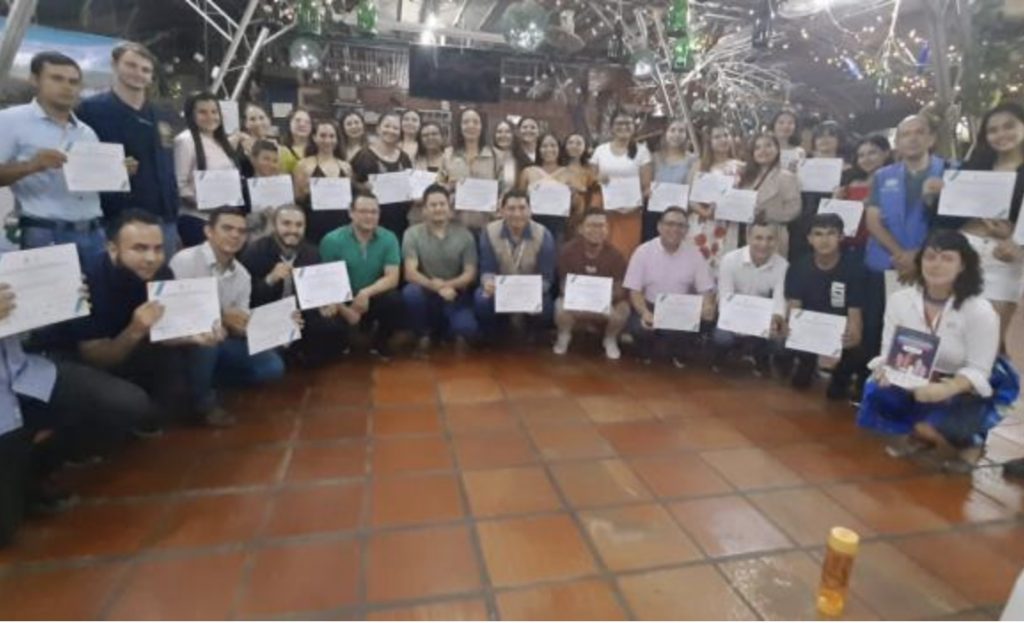FREE FLOW OF INFORMATION . .
An article from Unidad para las victimas (translation by CPNN)
With 45 graduates including university students, social leaders and victims of the armed conflict, the diploma “Transitional Justice: a contribution to the construction of territorial peace” culminated in Florencia (Caquetá). The course started last July for which ten accredited national and international organizations contributed their knowledge and experience.

The diploma was constituted in a commitment to inter-institutional articulation between the System of Attention and Comprehensive Reparation for Victims (SNARIV), the Comprehensive System for Peace (SIPAZ), the Peace Office and the legal office of the University of the Amazon ( UDLA), together with the German international cooperation organization (GIZ).
(continued on right column)
(Click here for the original Spanish version of this article.)
What is happening in Colombia, Is peace possible?
(continued from left column)
The participants learned basic knowledge about transitional justice, with a focus on Caquetá, where, in addition to understanding the processes of care and reparation for victims, land restitution, truth, justice, reparation and guarantees of non-repetition, they acquired tools in the fields of human rights and international humanitarian law,.
Valentina Almario, future lawyer and leader of women victims of abuse, highlighted the issue of the implementation of the gender approach in transitional justice contexts, as well as the territorial mechanisms for the implementation of the public policy for victims.
“To this must be added the importance of understanding the need for truth as a public good, to contribute to the construction of a culture of territorial peace in Colombia,” she said.
The student José Luis Tinoco Rivera said in this regard that he was particularly struck by the contrast made between the negotiation processes based on DDR -Demobilization, Disarmament, Reinsertion- of the last century, compared to the negotiation processes of this century, which are part of the logic of transitional justice.
The course took place over five months and 160 hours, including face-to-face classes, practical exercises, and homework.